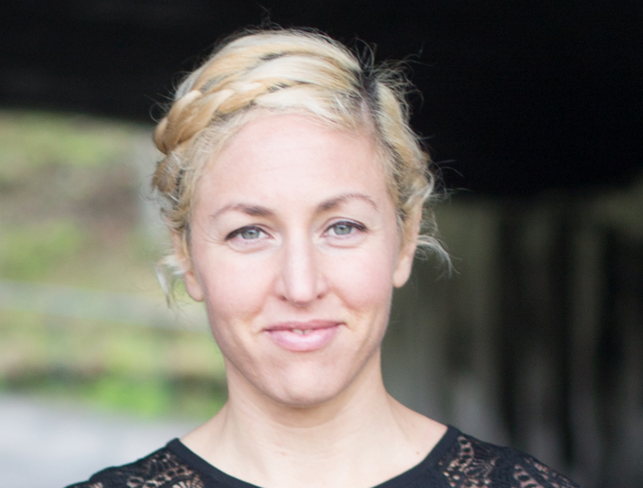Finding a manufacturer to help you create your product is a lot like dating, says Sarah Krasley. She talks to Dorian Ferlauto, founder and CEO of Britehub, which aims to help designers make the right match

Dorian ferlauto, founder and CEO of BriteHub
I taught a brand new Design for Manufacturing course at New York University’s storied ITP Program this Fall. In seven weeks, we blazed through milling, injection moulding, blow moulding, cutting, stamping, PCB ordering and 3D printing, alongside factory relations, requests for quotes and the mysteries of shipping something on those big barges laden with colourful boxes.
We somehow managed to not get whiplash. I delighted when I saw my students recognise parting lines in plastic parts and was somewhat pleased that the most common takeaway was: “I had no idea it was such a pain in the ass to make something.”
Almost all of my students were trying to bring new connected products to the burgeoning Internet of Things (IoT). None of them had made a product before and all needed to navigate the waters of finding and developing an agreement with a factory.
While my students were on a steep learning curve compared to more barnacled product designers, I think we can agree that when it comes to developing a new product, there are a dizzying number of options out there.
The reason for this is that “new” no longer means a riff on the old. It means experimenting with a new material, a new complex shape, a new benchmark for efficiency and/or putting electronics inside something that used not to have them.
It strikes me that finding a manufacturer to help you make something new is a lot like dating. Do you want them to be located near you or are you OK with a long-distance relationship? Do they feel you have your act together sufficiently that any relationship would prove stable, over the longer term? Is there potential for mutually beneficial growth?
Success in dating and relationships boils down, primarily, to good communication.
Developing supply chain relationships is no different. Dorian Ferlauto made this creative leap back in 2013 and founded a company called BriteHub that aims to bridge the communication ‘valley of death’ between product designers with ideas and contract manufacturers who might produce said ideas. It’s a yenta — a matchmaker — for production, if you will.
BriteHub now works with over 2,000 organisations every day making magic, one casing at a time.
Ferlauto placed her bets early and carefully, because she knew BriteHub couldn’t be everything to everyone.
She sought to find out how people communicated, so that her company could build a platform that was helpful to them. In doing this research, she says, “we learned that it’s one thing to have a data scrape, but in order for people to transact business and work together, there needs to be a uniform way of doing things.”
Ferlauto and her team attacked standardisation with laser focus for multiple reasons. From the point of view of manufacturers, “many work on the factory floor and want to be able to vet potential business leads coming through quickly and easily.
In many cases, facilities don’t want new leads; in reality, they just want the right ones. In every case, the process of vetting jobs and providing quotes needs to blend into their daily workflows and it has to happen in a standardised way, so it’s not new every time,” she explains.
The second objective BriteHub focuses on is extending the relationship beyond the request for quote (RFQ) and bid acceptance stages, through to workflow management.
Ferlauto explains that ducking out after architecting the initial interactions between product designers and contract manufacturers isn’t enough and wouldn’t serve either party well. In order to keep things moving along, BriteHub’s platform extends through engineering change orders (ECOs), supplier scorecards and connection points to enterprise software solutions.
It also gets both parties off email and other disparate, difficult-to-track forms of communication wherever possible.
In an effort to extend the dating metaphor to the very end of my piece, one might beg the question, why focus on standardising human interaction at all, when eventually, institutional knowledge from contract manufacturers will be turned into solvers that can predict cost, feasibility and the optimised way to do something in two shakes of a lamb’s tail?
Ferlauto believes that the human element won’t go away, or at least not in our lifetimes.
“It’s about human behaviour in the end,” she says. “Sure, there is a growing chorus of ‘Humans will be removed for total machine and design learning’, and I believe that there are some processes where this will be true. However, I believe there will always be human components.
There is too big of a knowledge base to lose them, and instead of total machine learning, people working in factories will be highly technical and [these people] will get smarter alongside the machines.”
Smarter relationships? Well, that sounds almost as romantic as lights-out manufacturing.
Sarah Krasley is the founder and principal of product, service and workplace policy design firm, Unreasonable Women. She is also an Adjunct Professor at New York University’s ITP Program. Learn more about her at sarahkrasley.com
Dorian Ferlauto, founder of Britehub, aims to help designers make the right match
Default






